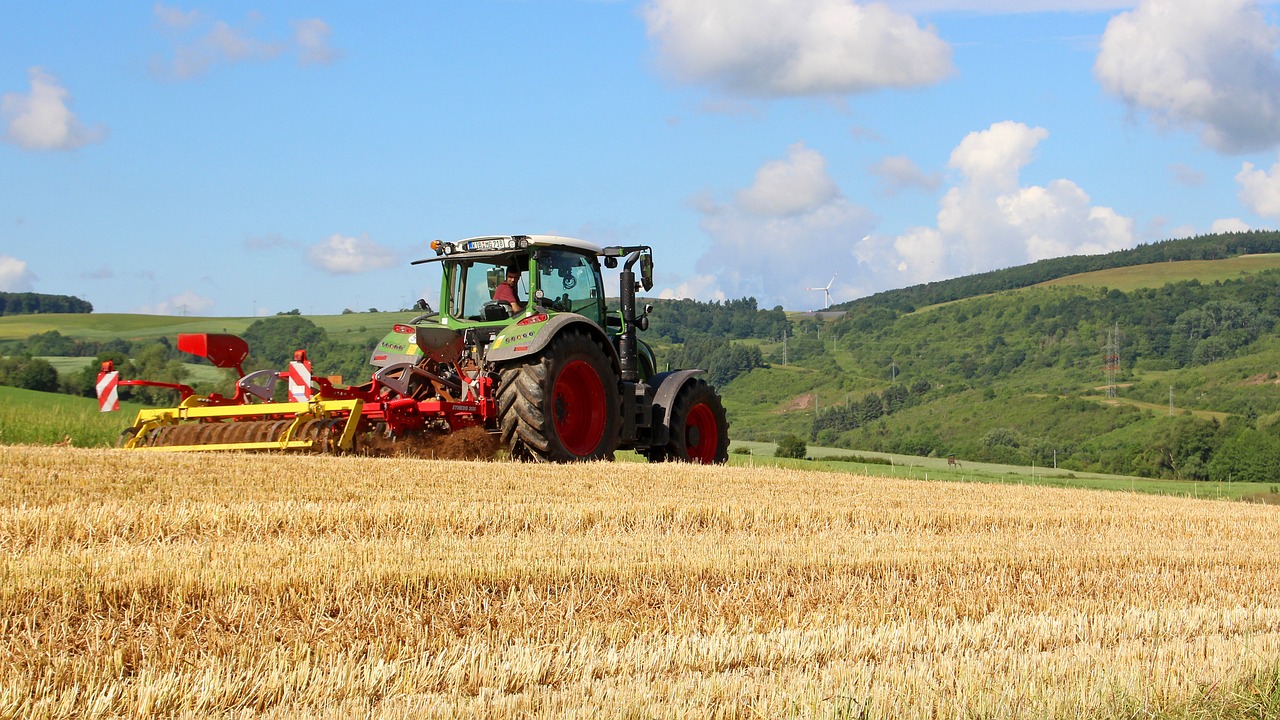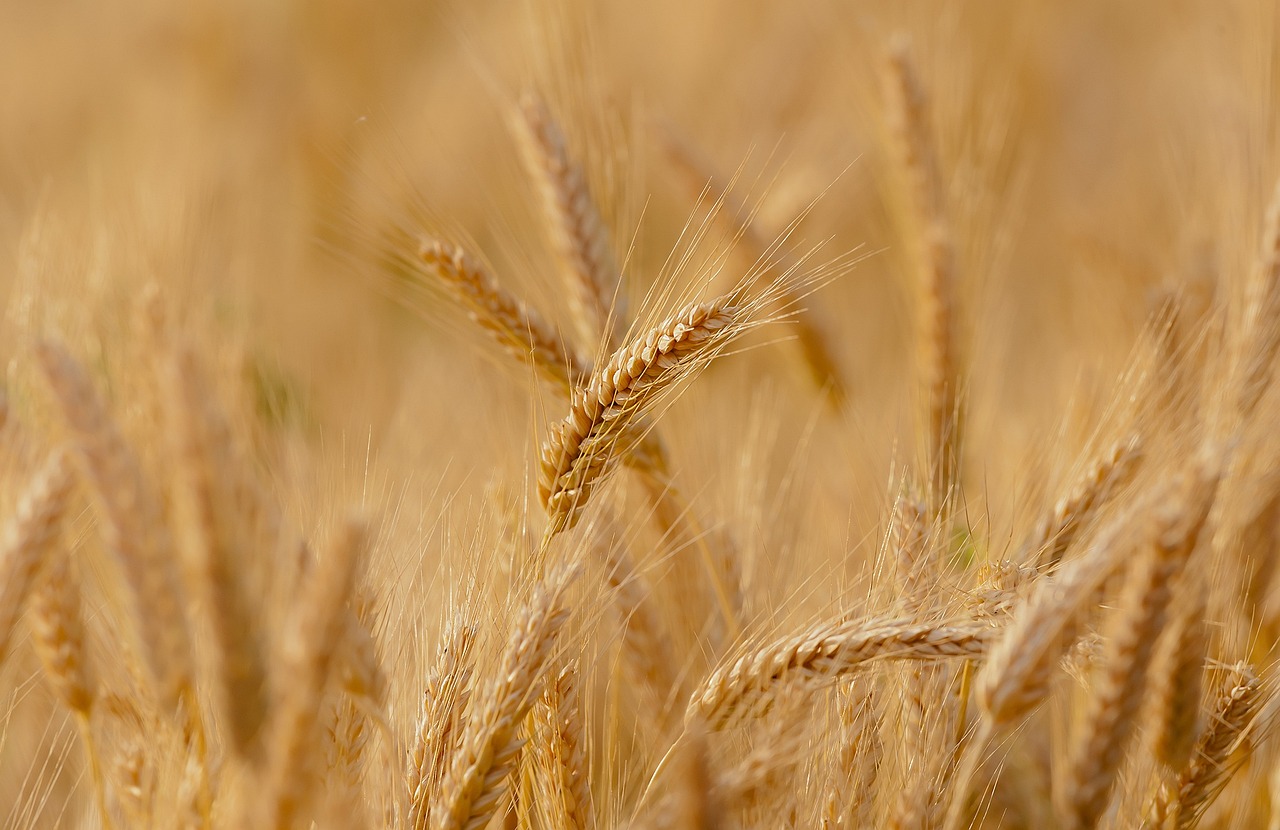The Importance of Supporting Local Farmers
In a world increasingly dominated by large corporations and mass-produced food, the significance of supporting local farmers cannot be overstated. These dedicated individuals are the backbone of our communities, providing not only fresh produce but also a sense of connection to the land and the people who cultivate it. When we choose to buy from local farmers, we are making a conscious decision that ripples through our economy, health, and environment. It's like planting a seed; the more we nurture it, the more it grows and flourishes, benefiting everyone involved.
So, why should we care about local farmers? Well, think of them as the unsung heroes of our food system. They work tirelessly, often facing challenges like unpredictable weather and fluctuating market prices, all while aiming to provide us with fresh, nutritious food. By supporting them, we not only help sustain their livelihoods but also contribute to a more resilient and sustainable food system. It's a win-win situation that benefits our health, our economy, and our environment.
Moreover, supporting local farmers fosters a sense of community. When you buy from a local farmer's market, you’re not just purchasing food; you’re engaging in a vibrant exchange of stories, traditions, and knowledge. You get to know the person who grows your food, understand their farming practices, and appreciate the hard work that goes into every bite you take. This connection enriches our lives and strengthens the fabric of our communities.
In essence, supporting local farmers is about making informed choices that align with our values. It’s about recognizing the impact of our food choices on our local economy, our health, and our planet. So the next time you’re at the grocery store or farmer's market, remember the broader implications of your choices. Choose local, support your community, and enjoy the myriad benefits that come with it. After all, every meal is an opportunity to make a difference.
- Why should I buy from local farmers? Buying from local farmers supports your community, promotes sustainable practices, and provides you with fresher, healthier food options.
- How can I find local farmers in my area? You can visit local farmer's markets, check community-supported agriculture (CSA) programs, or look for local farms through online directories.
- Are local foods really healthier? Yes, local foods are often fresher and can be more nutritious than mass-produced alternatives, which may lose nutrients during long transportation times.
- What are some environmental benefits of supporting local farmers? Local farming typically has a lower carbon footprint due to reduced transportation emissions and often employs sustainable practices that conserve water and preserve soil health.

Economic Benefits
This article explores the significance of supporting local farmers, highlighting their impact on the economy, community health, and sustainable practices while encouraging consumers to make informed choices about their food sources.
When you think about supporting local farmers, you might picture fresh produce and quaint farmer's markets. But the truth is, the economic benefits of buying local extend far beyond just delicious tomatoes and crisp lettuce. Supporting local agriculture is like planting seeds of prosperity right in your community. It keeps money circulating within the local economy, which can lead to a vibrant and thriving community. Think of it this way: when you buy from a local farmer, you're not just purchasing food; you're investing in the future of your neighborhood.
One of the most significant economic impacts of supporting local farmers is job creation. Local farms often require a variety of roles, from field workers to market vendors, which means more employment opportunities for residents. In fact, studies show that local food systems can create up to twice as many jobs compared to the same amount of money spent on food from large, industrial farms. This is because local farms tend to employ more people per unit of production. So, when you buy that basket of strawberries, you're also supporting your neighbor's job.
Additionally, local farmers are often more likely to reinvest their profits back into the community. They might buy supplies from local businesses, hire local services, or support local events. This kind of economic synergy creates a robust ecosystem where everyone benefits. It’s a bit like a circle of life, but for your local economy!
Moreover, supporting local agriculture fosters entrepreneurship. Many local farmers are small business owners who are passionate about what they do. By purchasing from them, you're encouraging innovation and creativity in farming practices. Local farmers often experiment with unique crops and sustainable practices that larger farms might overlook. This not only diversifies the food supply but also contributes to the overall resilience of the local economy.
To put it into perspective, let’s look at a simple table that outlines the differences between local and industrial farming in terms of economic impact:
| Aspect | Local Farming | Industrial Farming |
|---|---|---|
| Job Creation | Higher jobs per dollar spent | Lower jobs per dollar spent |
| Community Investment | Reinvests profits locally | Profits often leave the community |
| Entrepreneurship | Encourages small businesses | Dominated by large corporations |
In conclusion, supporting local farmers is not just about enjoying fresh produce; it's about nurturing the economic landscape of your community. By choosing to buy local, you are making a conscious decision to support job creation, community investment, and entrepreneurship. So the next time you're at the grocery store or farmer's market, remember that your choices can have a profound impact on your local economy.
Local farmers often provide fresher, organic produce compared to mass-produced alternatives. This section discusses the health benefits of consuming locally sourced foods and how they contribute to better nutrition.
Local farming practices frequently emphasize organic methods, reducing the need for harmful chemicals. This subheading explores the environmental and health implications of choosing organic, locally grown produce.
Sustainable farming practices employed by local farmers help maintain soil health. This subheading delves into how these practices contribute to long-term agricultural productivity and environmental sustainability.
Supporting local farmers can help preserve biodiversity by promoting diverse crop varieties. This section discusses the importance of biodiversity in agriculture and its benefits for ecosystems.
Buying from local farmers fosters a sense of community and connection. This subheading highlights the social benefits of supporting local agriculture and how it strengthens community ties.
Local farming practices tend to have a lower carbon footprint. This section examines how supporting local farmers contributes to environmental sustainability and combats climate change.
Locally sourced food requires less transportation, reducing greenhouse gas emissions. This subheading discusses the environmental advantages of consuming locally produced goods.
Many local farmers implement water conservation techniques. This section explores how these practices not only benefit the environment but also ensure the longevity of water resources for future generations.
Q: Why should I buy from local farmers?
A: Buying from local farmers supports your community's economy, provides you with fresher produce, and promotes sustainable practices.
Q: How can I find local farmers in my area?
A: Look for farmer's markets, local co-ops, or agricultural fairs. Many communities have directories of local farms available online.
Q: Are local foods really healthier?
A: Yes, local foods are often fresher and can be less processed, leading to better nutritional quality.

Healthier Food Options
When it comes to food, the phrase "you are what you eat" holds a profound truth. Supporting local farmers means you're choosing that are not only fresher but also packed with nutrients. Imagine biting into a ripe tomato that was picked just hours ago, bursting with flavor and vitality. In contrast, that same tomato might have traveled thousands of miles, losing its freshness and nutritional value along the way. Local farmers provide us with the opportunity to enjoy seasonal produce that is often harvested at its peak, ensuring maximum taste and health benefits.
One of the most compelling reasons to buy from local farmers is the availability of organic produce. Many local farms prioritize organic farming practices, steering clear of synthetic pesticides and fertilizers. This means that when you choose to buy locally, you're likely consuming fruits and vegetables that are not only safer for your health but also better for the environment. In fact, studies show that organic foods can contain higher levels of certain nutrients, offering a more wholesome option compared to conventionally grown produce.
Furthermore, eating locally sourced foods can significantly enhance your overall nutrition. Consider the following benefits:
- Higher Nutritional Value: Local produce is often harvested at its peak ripeness, leading to a higher concentration of vitamins and minerals.
- Fewer Preservatives: Since local food doesn't require long-distance transportation, it typically doesn't need preservatives, making it a cleaner choice.
- Variety: Local farmers often grow a diverse range of crops, giving you access to a wider variety of fruits and vegetables that you might not find in a supermarket.
In addition to these health benefits, buying local also encourages a healthier lifestyle. When you support local farmers, you’re more likely to incorporate fresh produce into your meals, which can lead to better eating habits. It’s easier to whip up a colorful salad or a hearty vegetable stir-fry when you have access to fresh ingredients. Plus, when you know where your food comes from, you may feel more motivated to try new recipes and explore different cuisines, further enhancing your culinary experience.
But the benefits don’t stop there! Choosing local produce can also have a ripple effect on your community's health. When local farmers thrive, they contribute to the local economy, leading to better resources for public health initiatives, schools, and community programs. It’s a win-win situation that fosters not just individual health but also collective well-being.
In conclusion, supporting local farmers is a delicious way to ensure you’re getting the most out of your food. It’s about making informed choices that benefit not just your plate but your community and the environment. So next time you're at the grocery store, consider taking a detour to your local farmer's market or farm stand. Your taste buds—and your body—will thank you!
Q: Why is local food healthier?
A: Local food is often fresher and harvested at its peak ripeness, which can lead to higher nutritional value and fewer preservatives.
Q: Are local farmers' practices environmentally friendly?
A: Many local farmers use sustainable practices, such as organic farming, which reduces chemical use and promotes biodiversity.
Q: How can I find local farmers in my area?
A: You can check local farmers' markets, community-supported agriculture (CSA) programs, or online directories that connect consumers with local producers.

Reduced Chemical Use
One of the most compelling reasons to support local farmers is their commitment to reducing chemical use in agriculture. Unlike large-scale industrial farms that often rely heavily on synthetic fertilizers and pesticides, many local farmers prioritize organic practices that promote healthier ecosystems. This not only benefits the environment but also enhances the quality of the food we consume. Imagine biting into a crisp apple, knowing that it was grown without harmful chemicals. It’s not just a treat for your taste buds; it’s a win for your health!
Local farmers typically embrace methods that are kinder to the soil and the surrounding environment. They often use natural fertilizers, such as compost and manure, which enrich the soil without the negative side effects associated with chemical alternatives. This practice not only nourishes the plants but also helps maintain the delicate balance of the ecosystem. By avoiding harmful chemicals, local farmers contribute to a healthier food system that benefits everyone in the community.
Furthermore, the reduced use of chemicals leads to healthier produce. Studies have shown that fruits and vegetables grown without synthetic pesticides tend to have higher nutrient levels. When you choose locally sourced foods, you’re not just supporting your local economy; you're also making a choice that can lead to better nutrition for you and your family. Think about it: would you rather eat a tomato that’s been sprayed with chemicals or one that’s been nurtured organically? The difference is not just in taste but in health benefits, too!
Moreover, the environmental implications of reducing chemical use are profound. Chemicals can leach into the soil and waterways, causing pollution that affects wildlife and human health alike. By supporting local farmers who prioritize organic practices, you’re taking a stand against this pollution. It’s a small choice that can lead to significant changes in our environment. In essence, buying from local farmers is like casting a vote for a cleaner planet.
In summary, the commitment to by local farmers is a crucial factor in promoting sustainable agriculture. It’s about more than just food; it’s about creating a healthier community and a more sustainable future. So the next time you’re at a farmers' market or a local grocery store, remember that your choices matter. By supporting local farmers, you’re contributing to a movement that values health, sustainability, and community well-being.
- Why should I buy from local farmers? Buying from local farmers supports your community, ensures fresher produce, and promotes sustainable agricultural practices.
- Are local foods really healthier? Yes! Local foods are often fresher and can have higher nutrient levels, especially when grown organically.
- How do local farmers reduce chemical use? Many local farmers use organic farming methods, such as crop rotation and natural fertilizers, to minimize chemical inputs.
- What are the environmental benefits of supporting local farmers? Supporting local farmers reduces transportation emissions and promotes sustainable practices that help preserve the environment.

Impact on Soil Health
When we talk about supporting local farmers, it's not just about the delicious fruits and vegetables we get to enjoy; it’s also about the health of our soil. You might be wondering, why is soil health so crucial? Well, think of soil as the foundation of our food system, much like a solid foundation is essential for a sturdy house. If the soil is healthy, it can produce nutritious crops that benefit both our bodies and the environment.
Local farmers often practice sustainable agriculture, which means they focus on methods that enhance soil health rather than degrade it. This includes techniques such as crop rotation, cover cropping, and reduced tillage. These practices help to maintain the soil structure, prevent erosion, and promote biodiversity within the soil ecosystem. For instance, by rotating crops, farmers can naturally replenish the nutrients in the soil, reducing the need for synthetic fertilizers that can harm the land in the long run.
Moreover, healthy soil is teeming with life. It’s home to countless organisms, from earthworms to beneficial bacteria, all of which play a vital role in breaking down organic matter and making nutrients available to plants. When you buy from local farmers who prioritize these practices, you are essentially supporting a vibrant ecosystem. You might be surprised to learn that a single teaspoon of healthy soil can contain billions of microorganisms! This biodiversity not only contributes to soil fertility but also helps in pest and disease control, reducing the need for chemical interventions.
Let’s not forget the role of organic matter in soil health. Local farmers often incorporate compost and other organic materials to enrich the soil. This not only improves the soil's ability to retain moisture but also enhances its nutrient content. In fact, studies show that soils rich in organic matter can hold up to 20 times more water than sandy soils. This is particularly important as we face challenges like droughts and climate change. By supporting local farmers, you are indirectly contributing to the resilience of our agricultural systems.
In conclusion, the impact of supporting local farmers on soil health is profound. It’s about more than just buying local; it’s about investing in a sustainable future where our soil can thrive, our crops can flourish, and our communities can enjoy the benefits of healthy, nutrient-rich food. So, next time you’re at a farmer's market or a local grocery store, remember that your choices have the power to influence not just your health, but the health of our planet's soil.
- Why is soil health important for agriculture? Healthy soil is essential for growing nutritious crops, supporting biodiversity, and maintaining the ecosystem.
- What practices do local farmers use to maintain soil health? Local farmers often use crop rotation, cover cropping, and organic amendments like compost to enhance soil fertility.
- How does supporting local farmers help the environment? It encourages sustainable practices that protect soil health, reduce carbon emissions, and promote biodiversity.

Preservation of Biodiversity
When we talk about preserving biodiversity, it’s crucial to recognize the vital role that local farmers play in maintaining a rich variety of crops and livestock. Unlike large-scale industrial farms that often focus on a few high-yield varieties, local farmers frequently cultivate a diverse range of species. This practice not only enhances the resilience of our food systems but also helps to protect the genetic diversity of plants and animals that is essential for adapting to changing environmental conditions.
By supporting local agriculture, we are essentially investing in a tapestry of life that contributes to a balanced ecosystem. Imagine a world where every farm is a vibrant patchwork of colors, textures, and flavors. This diversity is not just beautiful; it serves practical purposes. For instance, a variety of crops can help prevent pest outbreaks and reduce the need for chemical interventions. When farmers grow multiple types of plants, they create habitats for beneficial insects and pollinators, thus fostering a healthier environment.
Local farmers often embrace traditional farming techniques that have been passed down through generations. These methods are typically more sustainable and encourage the cultivation of heirloom varieties—plants that have been preserved for their unique qualities and flavors. By purchasing from these farmers, consumers are not only enjoying tastier and more nutritious food but also supporting the continuation of these ancient agricultural practices that contribute to biodiversity.
Moreover, biodiversity is crucial for food security. A diverse agricultural system can withstand diseases and climate variations better than monoculture systems. When farmers grow a wider array of crops, they are less vulnerable to crop failures caused by pests or adverse weather conditions. This resilience is key in ensuring that communities have access to food even in challenging times.
In addition to benefiting the environment, preserving biodiversity through local farming practices has profound implications for our health. A diverse diet rich in various fruits, vegetables, and grains can help reduce the risk of chronic diseases and improve overall well-being. It’s a win-win situation: we support local economies and farmers while also nourishing our bodies with a rich array of nutrients.
In summary, when we choose to support local farmers, we are taking a stand for biodiversity. We are making a conscious decision to protect our environment, promote sustainable practices, and ensure that future generations inherit a healthy planet. So the next time you visit a farmers' market or buy from a local farm, remember that you are not just purchasing food; you are participating in a movement that champions the preservation of our planet's rich biological heritage.
- Why is biodiversity important for agriculture? Biodiversity is crucial for agriculture as it enhances resilience against pests, diseases, and climate change, ensuring food security and sustainability.
- How can consumers support local farmers? Consumers can support local farmers by purchasing their products directly from farmers' markets, joining community-supported agriculture (CSA) programs, and advocating for local food policies.
- What are heirloom varieties? Heirloom varieties are traditional plant varieties that are cultivated for their unique flavors, colors, and textures, often passed down through generations.
- How does local farming help the environment? Local farming reduces transportation emissions, promotes sustainable land use, and encourages biodiversity, all of which contribute to a healthier environment.

Community Connections
When you think about food, what comes to mind? Maybe it's the aroma of freshly baked bread or the vibrant colors of ripe tomatoes at your local farmer's market. Supporting local farmers goes beyond just buying fresh produce; it builds a stronger community. Imagine walking through your neighborhood and knowing the faces behind the food on your table. When you purchase from local farmers, you're not just making a transaction; you're forging connections that enrich your community.
These connections create a network of support that can lead to various benefits. For instance, when you buy local, you’re directly contributing to the livelihoods of your neighbors. This can help foster a sense of pride and ownership within the community. People feel more invested when they know their dollars are supporting local businesses rather than distant corporations. It’s like planting a seed; with care and attention, it grows into something beautiful. Here are a few ways supporting local farmers strengthens community ties:
- Building Trust: Regularly interacting with local farmers allows consumers to develop trust. You can ask questions about farming practices and get to know how your food is grown.
- Encouraging Local Events: Farmers often participate in community events, such as farmers' markets, where people gather, share stories, and enjoy local culture.
- Fostering Collaboration: Local farmers often collaborate with local businesses, schools, and organizations, creating a web of support that enhances community resilience.
Moreover, these connections often lead to a greater appreciation for the food we eat. When you know the story of the farmer who grew your vegetables, it transforms your relationship with food. You start to see it as a product of hard work and dedication, rather than just a commodity. This shift in perspective can lead to more mindful eating habits and a desire to support sustainable practices.
Additionally, local farms often engage in educational programs, teaching community members about sustainable agriculture and healthy eating. This not only empowers individuals with knowledge but also strengthens community bonds. Imagine attending a workshop where you learn how to grow your own herbs or cook with seasonal ingredients. It’s not just about food; it’s about creating shared experiences that bring people together.
In essence, supporting local farmers creates a ripple effect that enhances community connections. It’s a beautiful cycle where local economies thrive, relationships deepen, and everyone benefits. So next time you’re at the grocery store or farmers' market, remember that your choices have the power to weave a stronger community fabric. Let’s celebrate the local farmers who feed us, connect us, and inspire us to be better stewards of our environment.
Q: Why should I buy from local farmers?
A: Buying from local farmers supports your community's economy, provides fresher food options, and promotes sustainable agricultural practices.
Q: How can I find local farmers in my area?
A: You can find local farmers through farmers' markets, community-supported agriculture (CSA) programs, or online directories that list local farms.
Q: What are the benefits of eating locally sourced food?
A: Locally sourced food is often fresher, has a lower carbon footprint, and supports local economies. It also tends to have higher nutritional value.
Q: How does supporting local farmers impact the environment?
A: Supporting local farmers reduces transportation emissions and encourages sustainable farming practices that benefit soil health and biodiversity.

Environmental Sustainability
When we think about supporting local farmers, one of the most compelling reasons is their role in promoting . Unlike large-scale industrial farming, which often prioritizes profit over ecological health, local farms tend to adopt practices that are kinder to our planet. By choosing to buy from these farmers, we are not just making a personal choice about what to eat; we are actively participating in a movement that values the earth and its resources.
Local farming practices typically have a lower carbon footprint compared to their industrial counterparts. This is largely due to the reduced need for transportation. When food is grown nearby, it doesn’t have to travel hundreds or even thousands of miles to reach our plates. This means fewer delivery trucks on the road, which translates to lower greenhouse gas emissions. Imagine the impact if everyone in a community chose to buy their produce from local sources instead of supermarkets that stock imported goods!
In addition to reducing transportation emissions, many local farmers are champions of water conservation. They often implement innovative techniques that allow them to use water more efficiently. For instance, drip irrigation systems can deliver water directly to the roots of plants, minimizing waste and ensuring that every drop counts. These practices not only help the environment but also safeguard vital water resources for future generations. As we face increasing challenges related to water scarcity, supporting farmers who prioritize conservation can make a significant difference.
Moreover, local farmers tend to embrace sustainable agricultural practices that enhance soil health. Healthy soil is the foundation of productive farming, and it plays a crucial role in carbon sequestration—essentially, it helps to trap carbon dioxide and keep it out of the atmosphere. By using techniques such as crop rotation, cover cropping, and organic fertilization, local farmers can improve soil fertility while reducing the need for synthetic chemicals. This not only benefits the environment but also leads to healthier food for consumers.
Additionally, supporting local agriculture helps preserve biodiversity. Many local farmers grow a variety of crops, unlike large farms that often focus on a single type of produce. This diversity is essential for maintaining robust ecosystems. It encourages a balance of pests and pollinators and reduces the risk of crop failure due to disease. When we buy from local farmers, we are not just choosing fresher food; we are also supporting a system that values ecological balance and resilience.
In summary, the environmental benefits of supporting local farmers are profound. By choosing to purchase locally sourced food, we can significantly reduce our carbon footprint, conserve precious water resources, and promote biodiversity. It’s a choice that not only satisfies our hunger but also nourishes the planet. So next time you’re at the grocery store or a farmer’s market, think about the broader impact of your choices. Are you ready to make a difference?
- Why should I buy from local farmers? Buying from local farmers supports your community, promotes sustainable practices, and often results in fresher, healthier food options.
- How does local farming help the environment? Local farming reduces transportation emissions, promotes water conservation, and maintains soil health, all of which contribute to environmental sustainability.
- What are some sustainable practices used by local farmers? Sustainable practices can include crop rotation, organic farming, and the use of water-efficient irrigation systems.
- How can I find local farmers in my area? You can find local farmers through farmers' markets, community-supported agriculture (CSA) programs, or local agricultural cooperatives.

Less Transportation Emissions
When you choose to buy from local farmers, you're not just supporting your community; you're also making a significant impact on the environment, especially when it comes to reducing transportation emissions. Think about it: the average meal travels over 1,500 miles from farm to table. That's a lot of carbon emissions just to get your food to you! When you purchase locally, that distance shrinks dramatically. Instead of relying on large trucks that guzzle fuel, you can enjoy fresh produce that might have been harvested just a few miles away.
By consuming locally sourced foods, we reduce the need for long-distance transportation, which is a major contributor to greenhouse gas emissions. In fact, studies show that food transportation accounts for nearly 11% of all greenhouse gas emissions in the United States. Imagine if we could cut that number down significantly! By supporting local farmers, you play a part in this vital movement towards sustainability.
Moreover, local farms often utilize more efficient methods of distribution. Many farmers sell directly to consumers through farmers' markets or community-supported agriculture (CSA) programs, eliminating the middleman and reducing the carbon footprint even further. It's like having a direct line to the source of your food, which not only benefits the environment but also enhances the freshness and flavor of what you eat.
Here’s a quick comparison to illustrate the difference:
| Type of Food | Average Distance Traveled (miles) | Estimated CO2 Emissions (lbs) |
|---|---|---|
| Imported Produce | 1,500 | 3.5 |
| Local Produce | 50 | 0.1 |
As you can see from the table, the difference is staggering. By choosing local, you not only enjoy fresher food but also contribute to a healthier planet. It's a win-win situation! The less we rely on long-distance transportation, the more we can combat climate change and protect our environment for future generations.
So next time you're at the grocery store or farmers' market, consider the impact of your choices. Supporting local farmers means you're not just feeding your family; you're also helping to create a more sustainable world. Every little bit counts, and together, we can make a big difference!
- Why should I buy local? Buying local supports your community, reduces transportation emissions, and often provides fresher, healthier food options.
- How can I find local farmers? Look for farmers' markets, local co-ops, or websites that connect consumers with local producers.
- Are local foods more expensive? While some local foods may cost more, the benefits to your health and the environment often outweigh the price difference.

Water Conservation Practices
Water conservation is more than just a buzzword; it's a vital practice that local farmers have embraced to ensure the sustainability of their operations and the environment. Imagine a world where every drop of water is precious, much like gold. Local farmers understand this concept deeply, implementing innovative techniques that not only enhance their productivity but also protect our most essential resource. By using methods such as drip irrigation, rainwater harvesting, and crop rotation, they manage to use water more efficiently, ensuring that every plant receives just the right amount of moisture without wastage.
One of the most effective practices is drip irrigation, which delivers water directly to the roots of plants. This method minimizes evaporation and runoff, ensuring that water is used where it is needed most. In fact, studies have shown that drip irrigation can reduce water usage by up to 50% compared to traditional methods. Additionally, local farmers often engage in rainwater harvesting, capturing and storing rainwater for irrigation purposes. This practice not only conserves groundwater but also reduces the reliance on municipal water supplies, making it a win-win for both farmers and the environment.
Furthermore, local farmers often practice crop rotation, which involves alternating the types of crops grown in a particular area. This method not only improves soil health but also helps in managing water usage effectively. Different crops have varying water needs, and by rotating them, farmers can optimize water use while maintaining soil fertility. It's like giving the soil a break, allowing it to recharge and retain moisture for future crops.
In addition to these practices, many local farmers are increasingly adopting permaculture principles. Permaculture focuses on creating sustainable agricultural ecosystems that mimic natural processes. By designing their farms to work harmoniously with nature, these farmers can conserve water and enhance biodiversity. For instance, incorporating native plants into their farming systems can improve soil moisture retention and reduce the need for irrigation.
These water conservation practices not only benefit the farmers but also contribute to the overall health of the community. By reducing water usage, local farmers help maintain the water table and ensure that there is enough water available for everyone. The impact of these practices ripples through the community, promoting a healthier environment and a more sustainable future.
- Why is water conservation important for local farmers? Local farmers rely heavily on water for their crops. Conserving water helps them sustain their operations, reduces costs, and protects the environment.
- What are some common water conservation techniques used by farmers? Techniques include drip irrigation, rainwater harvesting, and crop rotation, all of which help in optimizing water use.
- How does water conservation benefit the community? By conserving water, farmers help ensure that there is enough water for everyone, thus promoting a healthier and more sustainable environment.
Frequently Asked Questions
- Why should I support local farmers?
Supporting local farmers is crucial because it boosts the local economy, creates jobs, and fosters community ties. When you buy from local farmers, you're not just getting fresh produce; you're investing in your community's future. It's like planting a seed that grows into a stronger, healthier neighborhood!
- What are the health benefits of eating locally sourced food?
Locally sourced food is often fresher and more nutritious than mass-produced alternatives. Since it's harvested at peak ripeness and travels shorter distances, it retains more vitamins and minerals. Plus, you can enjoy the peace of mind that comes from knowing where your food comes from!
- How does local farming reduce chemical use?
Many local farmers prioritize organic farming methods, which significantly reduces the use of harmful chemicals. By choosing to buy from them, you're not just opting for healthier food; you're also supporting practices that protect our environment and your health. It's a win-win!
- What impact do local farmers have on biodiversity?
Local farmers often grow a variety of crops, which helps preserve biodiversity. This diversity is essential for resilient ecosystems, as it supports various species and promotes soil health. By supporting local agriculture, you’re playing a part in maintaining the biodiversity that our planet needs!
- How does buying local contribute to environmental sustainability?
When you buy local, you significantly reduce the carbon footprint associated with transporting food over long distances. Less transportation means fewer emissions, which is better for our planet. Additionally, many local farmers implement sustainable practices that conserve water and protect natural resources.
- Are there community benefits to supporting local farmers?
Absolutely! Buying from local farmers strengthens community bonds and fosters relationships among residents. Farmers' markets and local food events create spaces for social interactions, making your community feel more connected and vibrant. It’s like bringing everyone together for a big, friendly family dinner!
- What are some ways to find local farmers?
You can find local farmers through farmers' markets, community-supported agriculture (CSA) programs, or by visiting local farms. Many communities also have online directories or social media groups dedicated to connecting consumers with local producers. It’s all about getting out there and exploring your local food scene!



















